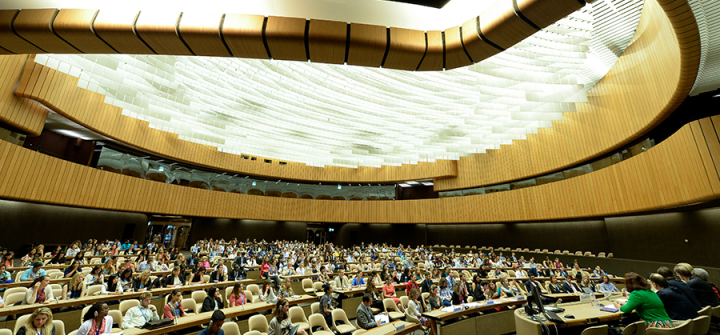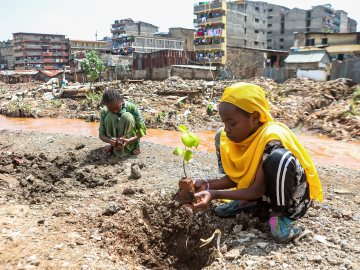Interns: Future Leaders—Not Free Labor
This year’s award for most intern-friendly organization goes to… WHO.
It has introduced lunch vouchers, 2.5 days of monthly leave allowance for interns as well as full health insurance coverage. Given that the interns at WHO collectively work an estimated 500,000 hours per year for the organization—for free—these new benefits are the least WHO can offer given the amount of work interns perform.
Member states also passed a resolution at the World Health Assembly in May directing WHO to provide financial support for interns by 2020 and demanding a greater geographical balance among the interns at WHO. It is no secret that most countries, especially developing countries, are underrepresented among the interns at WHO. Of the 500 interns at WHO headquarters in Geneva only, 75% of these interns are from high-income countries. Many of whom come through collaborative agreements with universities who send interns on a regular basis as part of their MPH programs. The underrepresentation of young professionals from low- and middle-income countries is not because of lack of awareness: 7,097 applications were received in the period from 15 March to 21 June 2018 from 181 countries (according to internal WHO HR reports). 80% of the candidates were from developing countries such as Nigeria, Pakistan, India and Kenya. The people who are selected, however, are the ones who can fund their stay and transport and can arrange their visa on their own to come here.
Thus, many of these capable individuals never make it to WHO because of a lack of financial support from their governments, their home institutions or their families. I know an intern from Uganda who was only able to come to Geneva because a wealthy uncle loaned him the money. However, even interns from developed countries can incur huge debts. A US friend returned home with $14,000 in debts from her 3-month stay in Geneva. Providing financial support to interns makes it possible for them to work for WHO, it also increases diversity among the community of interns, which, in turn, benefits WHO.
Member states’ unanimous passage of this resolution demonstrates their willingness to work together for a greater good, providing opportunities for young professionals from all over the world to come to the WHO to be trained and return as global health ambassadors to build capacity in their communities.
Creating such a network of highly successful, talented and passionate young people is what WHO and other UN organizations need to do to ensure a lasting impact through their work.
“Interns make an enormous contribution to WHO’s work, and the experience they gain is an important investment in building country capacity,” WHO Director-General Tedros Adhanom Ghebreyesus said in his opening address to the World Health Assembly in May. “Too often we use them as free labor, rather than an investment in youth.”
The Director-General himself is is a product of WHO´s investment in young people. Through a WHO scholarship program, Tedros was able to earn an advanced degree at the London School of Hygiene and Tropical Medicine. Chelsea Clinton and current health ministers were former interns at WHO and continue to be global health advocates today. Thus, equipping young aspiring talents with the necessary skills and tools is a crucial aspect of this internship program.
While WHO is still figuring out how to go about its global transformation, improvements in its internship program may be one of the important investments in the future.
I want to invite other organizations to follow WHO’s lead. It’s the right thing to do, and it’s a win-win for all.
Dina Tadros is a young medical doctor and global health advocate from Germany who served as president of the WHO Intern Board at Headquarters. Together with the intern cohort of March to July 2018 they managed to achieve several historic changes for the interns at WHO.
Join the tens of thousands of subscribers in more than 100 countries who rely on Global Health NOW summaries and exclusive articles for the latest public health news. Sign up for our free weekday enewsletter, and please share the link with friends and colleagues: http://www.globalhealthnow.org/subscribe.html
A general view of the participants in 2015’s "Interns with a Mission,” an initiative to enable dialogue between United Nations interns, staff, and diplomats based in Geneva, Switzerland. Image: UN Photo




